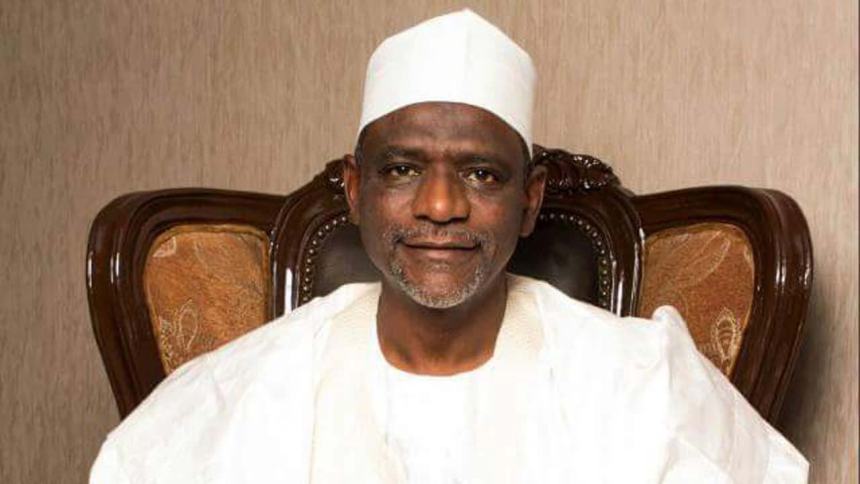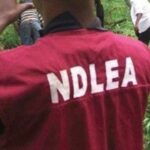Experts have offered suggestions on how to maintain safe operation in schools after resumption, amidst the COVID-19 pandemic.
Professor Muhammad Ibrahim Yakasai of the Faculty of Education, Bayero University, Kano (BUK), suggested that to ensure the safety of students and other members of school communities, there’s a need for serious awareness campaign, with regard to the reality of the COVID-19 pandemic.
“There must be awareness campaign and student orientation, perhaps to be organised by student affairs’ units, with the involvement of student unions, to be carried out both at lecture halls and other places where students gather. This is to ensure that people come to terms with the reality of the COVID-19 pandemic, especially as many still believe it is a hoax,” Prof Yakasai has said.
He said the principle of social distancing must be adhered to where practicable, and ensure that classrooms accommodate a reasonable number of students.
“This is only possible in schools with manageable number of students. When you take universities with population explosion like BUK and the Ahmadu Bello University (ABU), that will be difficult to achieve,” he said.
He also suggested the provision of facemasks, hand sanitisers and hand washing facilities to be placed at strategic places such as the entrance of lecture halls, labs, libraries and hostels.
Yakasai also said clinics should be well equipped to be able to respond quickly to emergency situations.
Also, Professor Bello Bello said measures must be taken to decongest classes, especially in urban areas where schools have large class sizes.
“You already have schools that run on shifts due to their number of students. In that case, maybe you need to increase the number of shifts to include morning, afternoon and evening, especially in urban areas if you are to avoid congestion and ensure social distancing.
“There will be problem of shortage of teachers because you cannot ask the same teachers to run three different shifts. In that case, something needs to be done about hiring of teachers,” he said.
A professor of Educational Leadership, University of Abuja, Salihu Yusufu Ingawa, said for post COVID-19 recovery, Nigeria should boost e-learning using solar energy, which is cheaper.
“We can do it in each school; the problem will be in the training of the teachers and technicians to handle it, but it is much easier,” he said.
Prof Ingawa noted that the biggest problem of Nigeria’s education system is the lack of political will despite having the policies.
“Long ago, the World Bank tried to get us to start e-learning from rural areas, using solar energy, but it was abandoned,” Ingawa noted.
The president of the National Association of Proprietors of Private Schools (NAPPS), Chief Yomi Otubela, also suggested that reopening of schools should be in batches, starting with the terminal classes, including Primary 6, JSS3 and SSS3, to adequately prepare for examinations.
He also suggested that schools be authorised to resume in states with no record of coronavirus and those with no surge in cases, before others.
According to him, for effectiveness, regulatory bodies should supervise the implementation of safety guidelines in both public and private schools, before and after resumption.
He said government and educational stakeholders must agree on a plan to get children back to school safely. He also recommended compulsory wearing of facemasks for members of staff, students and visitors, as well as observing physical distancing in classrooms and school buses.
He further stressed the need for regular decontamination of school environments and cleaning of all surfaces, work tools, general areas, among others.
Otubela urged policymakers to desist from converting public school facilities into markets and isolation centers as earlier suggested by federal authorities, noting that the lockdown should be used by stakeholders and health professionals to develop safety guidelines to fight the spread of the virus within the school system.
He called for provision of educational grants by the Federal Government to cushion the effect of COVID-19 and bail out private schools from imminent collapse.
The population of private schools in the country, according to the NAPPS, stands at 83,524 with 34,614,169 learners and over 1 million teaching and non-teaching staff.
To remain in business, Otubela requested non-interest loans to schools.
The commissioner for education in Lagos State, Mrs. Folashade Adefisayo, revealed that the state was meeting the Federal Ministry of Education and the Nigeria Centre for Disease Control (NCDC) on guidelines that could be adopted when schools reopen.
“We are watching the behaviour of the pandemic to see what happens next. We are working with the Federal Government on the possibility of re-opening schools in the country as soon as possible since this is not a decision any state can unilaterally take. If we are certain that the children are safe, we will reopen the schools.
“When the protocol is completed and health officials assure us that the coast is clear, we will give schools some days to adjust their premises in accordance with the guidelines on commencement of academic activities,” the commissioner said.
She noted that the protocol would be enforced by the Office of Education Quality Assurance in the state to ensure strict compliance by both public and private schools across the state
In Plateau State, some educationists said safe reopening of schools was a welcome development because education is the foundation to meaningful progress. They, however, cautioned that several safety measures must be put in place to avoid spike of new cases.
The deputy vice chancellor, Plateau State University, Bokkos, Associate Professor John Barnabas Nvau, advised that reopening of schools should be in batches. He said top principal officers should be the first to return to work, followed by the middle cadre staff. Thereafter, emphasis should be on awareness campaign when students are allowed into campuses in groups, he said.
He further said school communities must adhere to all safety measures in place. He urged the government to support schools in the provision personal protective equipment (PPE).
In her view, Professor Ladi Adamu of the Mass Communication Department, ABU, Zaria, schools should not be reopened until it is safe to do so. She said that from all indications, COVID-19 would linger for a while, and as a result, there is every need to have adequate safety measures in workplaces.
She advised that large classes be broken into smaller units while hostels should also be decongested.
Also, Professor Jerry Agada, a former minister of state for education and ex-president of the Association of Nigerian Authors (ANA), stressed the need for deliberate efforts by stakeholders to improve in all sectors of the country’s economy.
Agada, who is currently the chairman of the Benue State Civil Service Commission and a seasoned educationist, having served as a principal in a public secondary school, said the experiences garnered during the lockdown would help the country to move forward.
“My view of the post COVID-19 period is that in trying to return to normalcy afterwards, we should try to learn from the experiences of lockdown. For example, the use of virtual learning should be improved upon so that the method could be used alongside with the traditional method of teaching.
“In terms of doing business, practitioners should continue to obey the NCDC guidelines and measures, such as regular hand washing, use of hand sanitizers, facemasks, physical and social distancing, among others, so that it could become part of our daily lives,’’ he said.
Commenting on the cure for COVID-19, Agada posited that medical research should be intensified. He urged government to provide security and social welfare for the citizens as part of its priority because poverty can induce the virus. He noted that government at all levels should not think of salary reduction; instead they should do more to ameliorate the suffering of the people.
Meanwhile, the commissioner for education in Zamfara State, Dr Ibrahim Abdullahi Gusau, said he had outlined guidelines on how activities in schools would take shape when students return.
“In the guidelines, questionnaires would be answered to provide solutions to problems on student-teacher relationship, available classrooms ventilation, overcrowding, as well as measures in handling people with COVID-19 symptoms,’’ he said.
He said the governor had not yet given approval on the possible date for reopening of schools because he is still studying the guidelines for safe activities.
Also, an educationist, Dr Jimada Musa, said there should be ‘massive’ enlightenment campaign targeting students and parents to create awareness on the dangers of the disease, as well as preventive measures.




